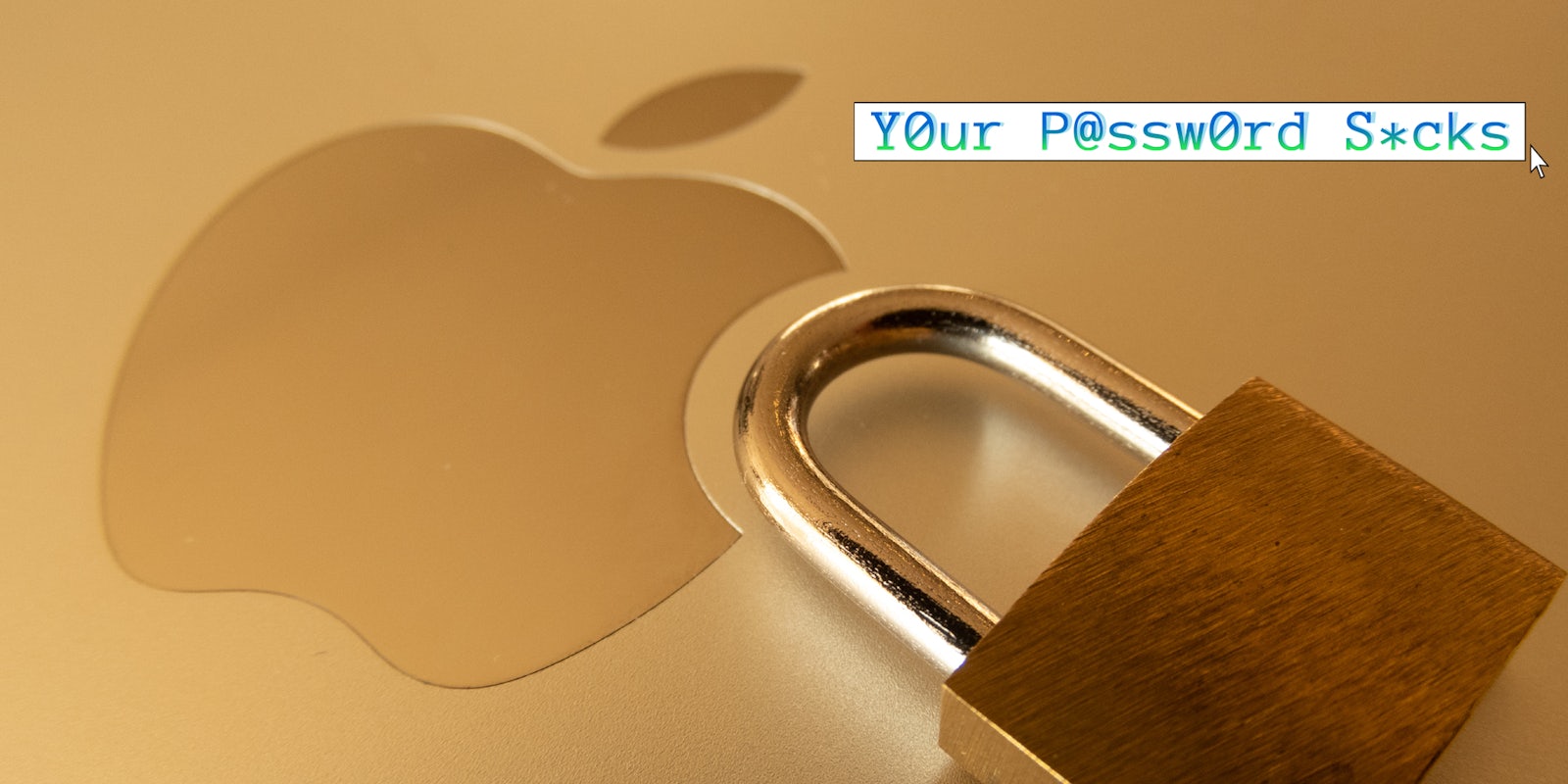Y0ur P@ssw0rd S*cks is a bi-weekly column that answers the most pressing internet security questions web_crawlr readers have to make sure they can navigate the ‘net safely. If you want to get this column a day before we publish it, subscribe to web_crawlr, where you’ll get the daily scoop of internet culture delivered straight to your inbox.
Today, web_crawlr reader Michael B. asks: “Do I need virus protection software on my iPhone, iPad, and Mac like I did on my Windows based laptop?”
It seems to be a widely held belief that Apple products including Mac laptops don’t get viruses. But just like Windows, Linux, and other operating systems, Macs are vulnerable to numerous threats.
Granted, macOS, the operating system used on Macs, comes equipped with some great security features designed to protect against malware and viruses. Yet with emerging threats such as ransomware being developed for Mac computers, there are still some steps you can take to add extra security.
If you feel so inclined, downloading antivirus software and running a regular virus check for your Mac or iPhone won’t hurt. Some popular options include Malwarebytes, Bitdefender, or Avast, among others.
However, there are other options when it comes to Apple security that I am much more excited about. One of my favorite companies dedicated to macOS security is Objective-See. Founded by former NASA employee, NSA hacker, and Mac malware specialist Patrick Wardle, this company offers some of the best tools for protecting your Mac.
Don’t let Wardle’s resume scare you away though, his tools are open source, meaning anyone can view the code. In fact, his tools are so good that major corporations have been lifting his code for products of their own.
Some of my favorite tools include OverSight, which will alert you any time your computer’s microphone or camera is being accessed. If you’re like me, you have your camera covered. But it still provides me peace of mind knowing that I’ll get an alert whenever the camera or microphone is being used, whether by myself when hopping onto a Zoom call or by sketchy malware.
Some of the other tools offered by Objective-See might have a bit of a learning curve. But they are still worth checking out to see if you think they’d be useful for you.
Now, as far as your iPhone goes, are there any similar tools? Luckily, Apple does a good job with iOS security as well. And for the vast majority of us, we won’t be targeted with million dollar spyware exploits like former Amazon CEO Jeff Bezos.
Still, there are a handful of things you can do to tighten down your phone’s security. One tool I really like is an app called iVerify. Not only does it scan your phone for signs of compromise, but it also provides you with step-by-step instructions on how to enable the best security settings for your device.
And while it may be completely over-the-top for some, Apple does now offer Lockdown Mode on newer phone models running iOS 16. Apple describes this setting, which limits your phone’s features, as “an optional, extreme protection that’s designed for the very few individuals who, because of who they are or what they do, might be personally targeted by some of the most sophisticated digital threats.”
So unless you are a journalist exposing government corruption or a human rights campaigner in a country where championing such causes is dangerous to do so, you likely won’t need to take such measures. But if you don’t mind losing some functionality, nothing is stopping you from enabling Lockdown Mode.
The internet is chaotic—but we’ll break it down for you in one daily email. Sign up for the Daily Dot’s web_crawlr newsletter here to get the best (and worst) of the internet straight into your inbox.

